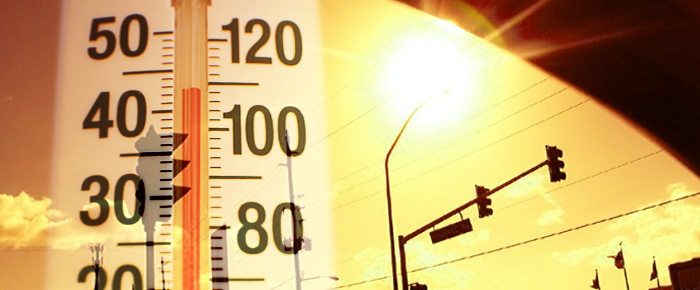
By Doug Morin
Executive Director – CV Volunteers In Medicine, Indio, CA
Summer in the Coachella Valley has its charms, but once the temperature rises into the 110 degree area and beyond, there are some serious health issues that we need to be aware of. Heat exhaustion is an illness that can occur after you’ve been exposed to high temperatures, and often is accompanied by dehydration that causes excessive thirst, headache, and loss of consciousness, while salt depletion results in nausea, muscle cramps and dizziness.
Heat stroke, on the other hand, the most serious form of heat injury, is considered a medical emergency. The primary symptom of heat stroke is a core body temperature above 105 degrees, but other symptoms include a throbbing headache, lack of sweating despite the heat, hot skin, nausea, confusion, and dizziness. A young child may have seizures. Heat stroke can cause damage to the brain and other internal organs and, while it mainly affects people over age 50, it also takes a toll on healthy young athletes. If you suspect that someone has heat stroke, call 911 immediately and cool the person with whatever is available — a tub of cool (not cold) water or a cool shower, or place ice packs or cold, wet towels on the person’s head, neck, armpits and groin.
Children especially need careful attention during the hot months. Between 1998 and 2011, at least 500 children in the United States died from being inside hot cars, and 75% of the victims were less than two years old. On average, 38 children die annually from heat-related deaths after being trapped inside vehicles. Even the best of parents or caregivers can unknowingly leave a sleeping baby in a car, and the end result can be injury or death. Elderly adults and disabled individuals left alone in a vehicle are also at risk for heat stroke.
Among recent child deaths in hot cars, about half occurred because parents forgot that the child was in the car, 18% happened after parents intentionally left the child in the car without understanding how hot it could get, and 30% happened after the child climbed into the car to play. Legal prosecution of parents in these situations can vary greatly. “Forgotten baby syndrome” is a pseudo-medical term for the danger of adult caregivers forgetting about the presence of a young child and consequently subjecting the child to danger or death.
Pets are even more susceptible than humans to heat stroke since they have fur and feathers and can’t produce whole-body sweat to cool themselves. Some breeds of dogs—like boxers, pugs, shiatzus, and other dogs and cats with short muzzles—will have a much harder time breathing in extreme heat. Animals are prohibited in many places around the Valley, so leaving your pet at home with plenty of water and air conditioning on hot days is a healthier option.
And don’t forget: hydrate, hydrate, hydrate – preferably with non-alcoholic beverages.












































